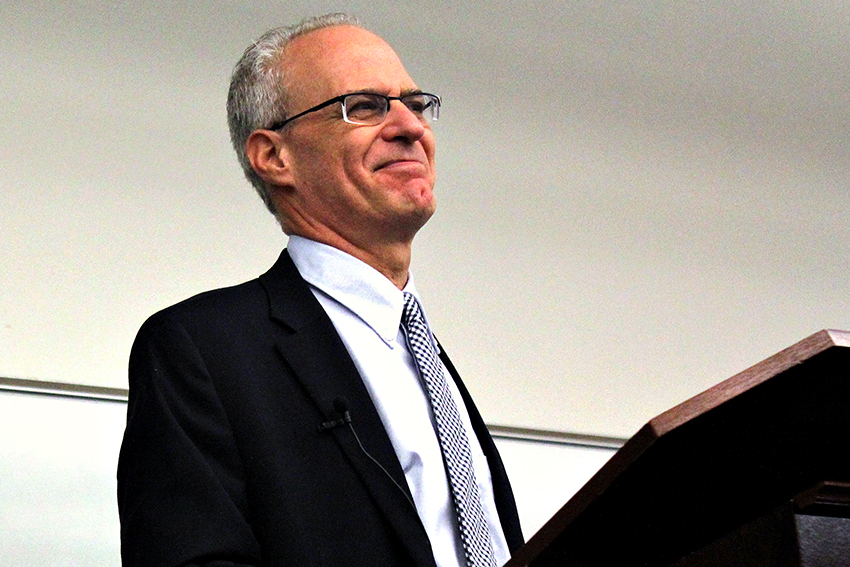While Tuesday’s vice presidential debate featured a discussion of nuclear weapon policies, vice presidential candidates Tim Kaine and Mike Pence aren’t the only ones talking about nuclear proliferation.
The Intelligence Studies Project and the LBJ School’s Nuclear Proliferation Prevention Project hosted a discussion about the importance of timely intelligence in nuclear proliferation policy Wednesday at the LBJ School. The Intelligence Studies Project is a joint partnership between the Robert Strauss Center for International Security and Law and the Clements Center for National Security; the NPPP engages in research and public education to ensure peaceful nuclear activities do not lead to the spread of nuclear weapons.
Henry Sokolski, executive director of the nonprofit Nonproliferation Policy Education Center, discussed trends Wednesday he has found by studying the history of ineffective nonproliferation policies. Nonproliferation policies are put in place to stop the spread of nuclear weapons and countries’ access to them.
Sokolski said inadequate intelligence is not the main issue, but rather policymakers’ priorities and whether they believe they possess good policy options.
“I think what we discovered by looking at these histories is that more often than not, even when there was timely, persuasive and actionable intelligence, policymakers for one reason or another blanked,” Sokolski said.
While many believe actionable intelligence is most lacking when creating policies, Sokolski’s examinations suggested different conclusions.
Sokolski identified shortcomings in the nonproliferation intelligence process in his report “Speaking Truth to Nonproliferation.” He engaged over 50 senior, retired and serving policymakers, intelligence officers and top academic national security analysts.
Alan Kuperman, associate professor at the LBJ School of Public Affairs and coordinator of the NPPP, invited Sokolski to be a guest lecturer in his course on nuclear and nonproliferation policy, but wanted him to have a chance to reach a larger audience of students throughout the University and other interested members in the Austin community, partially because of the ongoing election.
“Given that the two presidential candidates have very different views on nuclear proliferation, this is the kind of talk where the audience might learn things that will help them think about this difference between the two candidates on that issue with only a month to go before the election,” Kuperman said.
Public affairs graduate student Nicholas Broussard said it’s important the school provides opportunities like this and has these conversations.
“There’s always a divide between practitioners and academics and policy makers and the way that they share information,” Broussard said. “This is like the only opportunity we’ll have outside of these couple of years to hear different viewpoints. Once you get in the work force, it’s hard to create this space to hear new ideas.”





















